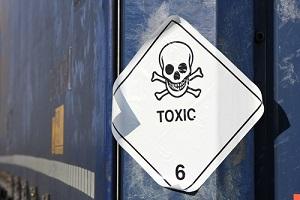Recent Blog Posts
Surgical Mistakes Have the Potential to Cause Pain, Suffering, and Death
 Whether it is a minor surgical procedure or a major operation, going “under the knife” can be a frightening prospect. Most surgeries performed in the United States are completed without mistakes or complications, but this is not always the case. In fact, Medical errors are so common that they are considered to be the third-leading cause of death in the U.S. today. Preventable mistakes during surgery make up a large portion of these errors. It is estimated that over 4,000 surgical mistakes occur every year and that these mistakes result in more than $1.3 billion in medical malpractice payouts. If you or a loved one have suffered due to a surgical error, you may be entitled to compensation.
Whether it is a minor surgical procedure or a major operation, going “under the knife” can be a frightening prospect. Most surgeries performed in the United States are completed without mistakes or complications, but this is not always the case. In fact, Medical errors are so common that they are considered to be the third-leading cause of death in the U.S. today. Preventable mistakes during surgery make up a large portion of these errors. It is estimated that over 4,000 surgical mistakes occur every year and that these mistakes result in more than $1.3 billion in medical malpractice payouts. If you or a loved one have suffered due to a surgical error, you may be entitled to compensation.
Why Do Surgical Errors Occur?
Surgeons, doctors, nurses, and other medical professionals often have extremely busy, stressful days. Few would dispute that working in the healthcare industry is one of the most challenging jobs there is. Sometimes, however, the stress and long hours can create serious problems, as some surgical mistakes are a result of oversight caused by fatigue. Others are due to lack of proper education or training, inadequate preoperative planning, or poor communication between medical staff. In rare cases, a surgical mistake may even be the result of a healthcare worker’s drug or alcohol use. Whatever the reason, medical workers who make negligent mistakes during surgery should be held responsible for their actions.
4 Steps You Should Always Take After Being in a Serious Auto Accident
 On average, about 90 individuals lose their lives in car accidents every day in the United States. Even a non-fatal car accident has the potential to completely alter your life. You may be severely injured and require extensive medical care or face permanent disability. Medical bills and financial hardship caused by lost income can make recovering from a traffic accident even more difficult. Fortunately, some car accident victims are eligible for compensation through a personal injury lawsuit. In order to preserve your ability to file a claim for damages after a serious car accident, always take these steps.
On average, about 90 individuals lose their lives in car accidents every day in the United States. Even a non-fatal car accident has the potential to completely alter your life. You may be severely injured and require extensive medical care or face permanent disability. Medical bills and financial hardship caused by lost income can make recovering from a traffic accident even more difficult. Fortunately, some car accident victims are eligible for compensation through a personal injury lawsuit. In order to preserve your ability to file a claim for damages after a serious car accident, always take these steps.
Step #1: Call the Police
If you are involved in a serious car accident that causes significant property damage or injuries, you need to contact police right away. Even if you do not file an injury claim, a formal police report that describes the accident is essential. This step creates an official record that the accident took place and gives insurance companies a starting point.
What You Should Know About Accidents Involving Defective Guardrails
 Guardrails are barriers that are placed along the edge of highways and other high-traffic roads. The purpose of guardrail is to minimize the damage caused by a vehicle leaving the driving lane. They may be used to divide lanes of traffic traveling in opposite directions, prevent vehicles from crashing into man-made structures such as buildings, and stop vehicles from rolling down steep hills. Although guardrails may look simple, their design and construction is the result of extensive research and innovation.
Guardrails are barriers that are placed along the edge of highways and other high-traffic roads. The purpose of guardrail is to minimize the damage caused by a vehicle leaving the driving lane. They may be used to divide lanes of traffic traveling in opposite directions, prevent vehicles from crashing into man-made structures such as buildings, and stop vehicles from rolling down steep hills. Although guardrails may look simple, their design and construction is the result of extensive research and innovation.
An important element of guardrails is that theys must be designed in such a way that they minimize the damage done to vehicles during a collision. Unfortunately, some guardrails actually do more harm than good. When a defective guardrail causes a person to be injured or killed, a lawsuit may help the injured person or the deceased person’s family to recover compensation.
When Workers’ Compensation Is Not Enough
 If you get hurt at work, your company most likely carries worker’s compensation insurance to cover the costs associated with your injuries, including medical expenses. What happens, though, when the benefits offered by a workers’ compensation policy fail to cover everything that you lost due to your injuries?
If you get hurt at work, your company most likely carries worker’s compensation insurance to cover the costs associated with your injuries, including medical expenses. What happens, though, when the benefits offered by a workers’ compensation policy fail to cover everything that you lost due to your injuries?
While workers’ compensation coverage is meant to assist injured employees with medical bills, lost wages, and in some cases, disability payments, the amount of benefits that are actually paid out can vary from person to person. Most worker’s compensation payouts are based on the company’s specific policy, as well as the nature and severity of the employee’s injury. While you cannot usually sue your employer for an injury you suffered at work, there are some situations in which you might be able to take legal action to collect additional compensation. The details, of course, depend on your unique circumstances, and a skilled personal injury lawyer can help you explore your available options.
What You Should Know About Pursuing Compensation for a Dog Bite in Illinois
 While many consider dogs to be “man’s best friend,” not all dogs are friendly. If you have been bitten by someone’s dog, you may have had to pay extensive emergency room bills and missed time from work. If the injury you sustained was the fault of someone else, it is only fair that he or she should pay for your damages. However, a successful dog bite personal injury claim can be hard to accomplish without qualified legal counsel. If you have suffered a dog bite injury in Illinois, there are a few things you should keep in mind.
While many consider dogs to be “man’s best friend,” not all dogs are friendly. If you have been bitten by someone’s dog, you may have had to pay extensive emergency room bills and missed time from work. If the injury you sustained was the fault of someone else, it is only fair that he or she should pay for your damages. However, a successful dog bite personal injury claim can be hard to accomplish without qualified legal counsel. If you have suffered a dog bite injury in Illinois, there are a few things you should keep in mind.
Dog Owners Are Only Responsible in Certain Circumstances
According to Illinois law, a dog owner is legally responsible for your damages caused by a dog bite if several criteria are met. First, you must have been bitten while in a public place or while lawfully in a private place. You would likely be able to sue a dog owner if his or her dog attacked you on a public sidewalk, for example. However, if you were walking through someone else’s back yard without their permission, this may be technically considered trespassing. In this type of situation, it can be nearly impossible to receive compensation for damages.
What Are Some of the Signs and Symptoms of a Concussion?
 A concussion is one type of traumatic brain injury (TBI) which is usually caused by a sudden impact or shake to the head. The word “concussion” comes from the Latin word “concussio” which means "to shake violently.” When a person sustains a concussion, the impact can jar the brain, sometimes causing it to literally move around inside the skull. Traumatic brain injuries such a concussion can cause brain bruising, blood vessel damage, and injury to nerves.
A concussion is one type of traumatic brain injury (TBI) which is usually caused by a sudden impact or shake to the head. The word “concussion” comes from the Latin word “concussio” which means "to shake violently.” When a person sustains a concussion, the impact can jar the brain, sometimes causing it to literally move around inside the skull. Traumatic brain injuries such a concussion can cause brain bruising, blood vessel damage, and injury to nerves.
Concussions are commonly caused by playing sports, car accidents, bicycle and pedestrian accidents, work-related injuries, and falling. Although a concussion is usually considered a relatively minor brain injury, any brain injury can cause cognitive impairment and result in financial losses. If you or a loved one suffered a concussion after an accident, you may be able to recover compensation for your injuries through a personal injury claim.
What You Should Know About Chemical Burns
 In workplaces nationwide, workers are required to use various chemicals and other materials in order to perform their jobs properly. While many chemicals are fairly safe, others often present severe dangers, including the ability to cause serious burns. If you have suffered a chemical burn while on the job or while visiting an industrial or construction site, seek treatment immediately and learn about your rights to possible compensation.
In workplaces nationwide, workers are required to use various chemicals and other materials in order to perform their jobs properly. While many chemicals are fairly safe, others often present severe dangers, including the ability to cause serious burns. If you have suffered a chemical burn while on the job or while visiting an industrial or construction site, seek treatment immediately and learn about your rights to possible compensation.
Breaking Down a Chemical Burn
Chemicals that can seriously burn a person are usually strong acids or bases. Some such chemicals are found in most homes and may include ammonia, chlorine bleach, and drain cleaning liquids and gels. In manufacturing and industrial settings, however, there are many more chemicals that are often used for a wide range of applications. These chemicals are usually even more concentrated—and therefore more dangerous—than their household counterparts.
What Types of Compensation Are Available in an Illinois Burn Injury Case?

Burns are some of the most painful and debilitating injuries a person can experience. Although minor burns heal quickly and do not leave lasting damage, severe burns, especially third-degree and fourth-degree burns, can cause permanent disfiguration and nerve damage. The pain experienced by a severe burn victim is incomparable to anything else. If you or a loved one suffered a major burn injury due to the carelessness or wrongdoing of another party, you may choose to file a personal injury claim. Through an injury claim, compensation for your economic and noneconomic damages may be available.
Determining Fault for Your Injuries
In order to bring a personal injury claim and recover damages, you and your attorney will need to prove that the defendant caused your injuries. Many burn injury cases are the result of an individual or entity’s negligence. A serious burn injury can be the result of an electrical accident, house or apartment fire, construction accident, restaurant accident, car crash, or a number of other incidents. Determining who is liable for a burn-causing accident is often challenging. An experienced personal injury attorney can help you collect evidence, gather witness testimony, and consult with experts who can testify to the defendant’s role in causing your burn injuries.
The Burden of Proof in a Personal Injury Claim
 Thanks to its inclusion in TV procedural dramas, movies, and other dramatic depictions, there is a good chance that you are familiar with the phrase “beyond a reasonable doubt” as it pertains to legal matters. While the concept predates American law, it has become a cornerstone principle in criminal courtrooms around the country, providing a basis for protecting the rights of the accused. Thanks to the ubiquitous nature of entertainment, it is easy to assume that the same standard applies in any type of court proceeding. Reasonable doubt, however, plays no specific role in civil court or personal injury claims, as the standard used in such cases is much different and much easier to attain. In civil court, a claimant must only show that his or her version of the event in question is more likely than not based on the “preponderance of the evidence.”
Thanks to its inclusion in TV procedural dramas, movies, and other dramatic depictions, there is a good chance that you are familiar with the phrase “beyond a reasonable doubt” as it pertains to legal matters. While the concept predates American law, it has become a cornerstone principle in criminal courtrooms around the country, providing a basis for protecting the rights of the accused. Thanks to the ubiquitous nature of entertainment, it is easy to assume that the same standard applies in any type of court proceeding. Reasonable doubt, however, plays no specific role in civil court or personal injury claims, as the standard used in such cases is much different and much easier to attain. In civil court, a claimant must only show that his or her version of the event in question is more likely than not based on the “preponderance of the evidence.”
Popular Insulin Pumps Recalled Due to Incorrect, Dangerous Dosing
 Insulin pumps are important devices that can make a world of a difference to suffers of diabetes. An insulin pump delivers insulin to the body at regular intervals based on the user’s needs. Many people find insulin pumps to be much easier to use and less painful than traditional insulin shots. Insulin pumps are often considered superior to other insulin delivery methods because the devices more effectively manage blood sugar levels and prevent blood sugar lows. Unfortunately, some insulin pumps do the exact opposite of what they are intended to do. A company called Medtronic recently issued a recall of two types of its insulin pumps after major problems with the medical devices were discovered.
Insulin pumps are important devices that can make a world of a difference to suffers of diabetes. An insulin pump delivers insulin to the body at regular intervals based on the user’s needs. Many people find insulin pumps to be much easier to use and less painful than traditional insulin shots. Insulin pumps are often considered superior to other insulin delivery methods because the devices more effectively manage blood sugar levels and prevent blood sugar lows. Unfortunately, some insulin pumps do the exact opposite of what they are intended to do. A company called Medtronic recently issued a recall of two types of its insulin pumps after major problems with the medical devices were discovered.
Malfunctioning Insulin Pumps Have Already Been Linked to Death
Over 300,000 Medtronic insulin pumps have been recalled after the FDA received thousands of reports of the devices malfunctioning. Two models of the MiniMed 600 Series Insulin Pumps have been recalled because many of the devices contain a broken or missing retainer ring. The retainer ring is meant to tightly secure the insulin cartridge to the pump. When this component is defective, the user can receive an inaccurate dose of insulin. This can result in dangerous hypoglycemia or hyperglycemia. Sadly, at least one death and over 2,000 injuries have already been associated with the defective insulin pumps.



